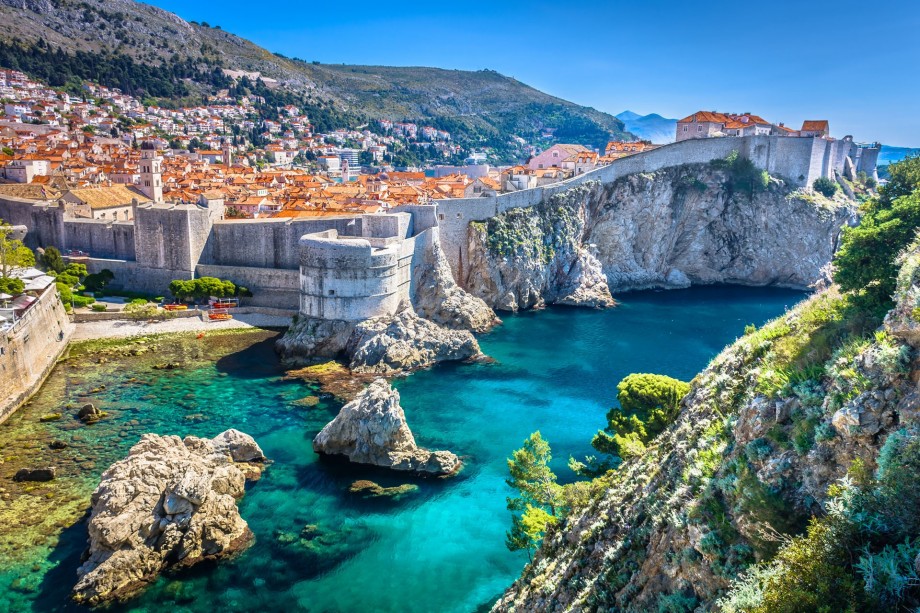
Sustainable tourism
What is sustainable tourism
Sustainable tourism refers to the development and management of tourism activities in a way that has minimal impact on the natural environment, culture and communities associated with tourist destinations and provides long-term benefits for all participants in tourism. This approach seeks to preserve natural resources and cultural heritage while providing economic well-being and stimulating the economy.
Sustainable tourism also includes promoting the local economy, providing high-quality guest services and complying with local laws and regulations. This can include using renewable energy sources, reducing greenhouse gas emissions, reducing waste and protecting natural habitats and species. As a tourist agency, Home Rent promotes sustainable tourism in its business and advises all owners of holiday villas in Croatia to adhere to the principles of sustainable tourism.
Sustainable tourism is based on a balance between economic, social and ecological interests, and strives to ensure the long-term sustainability of tourism as an economic activity. This can be achieved through cooperation between local communities, tourism workers, authorities and other interested parties.

How to achieve sustainable tourism
Achieving sustainable tourism requires the cooperation and engagement of all participants in the tourism industry, including travel agencies, tourists, local communities and authorities. Some of the key ways to achieve sustainable tourism are:
- Planning and managing tourism in a sustainable way: Tourist destinations should develop long-term plans that balance economic, social and ecological interests, and apply them in practice through the management of tourism activities.
- Education and awareness about sustainable tourism: Tourists and local communities should be educated about sustainable tourism and its importance. Travel agencies should educate their guests about environmental and social issues affecting the destination and provide them with guidelines for behavior in accordance with the principles of sustainable tourism.
- Protection of natural and cultural resources: Tourist destinations should implement measures to protect natural and cultural resources, including protection of natural habitats, reduction of greenhouse gas emissions and reduction of the use of non-renewable energy sources.
- Involvement of the local community: Tourist destinations should actively involve the local community in the development and management of tourism and provide them with the benefits of tourism through job creation and stimulation of the local economy.
- Encouraging sustainable transport: Tourist destinations should encourage sustainable transport such as bicycles, public transport, and reduce the use of personal vehicles.
- Responsible behavior of tourists: Tourists should be responsible in their behavior towards the environment and the local community, reduce their impact on nature and culture, and respect local customs and practices.
All these measures should be integrated into a comprehensive approach to sustainable tourism to ensure the long-term sustainability of the tourism industry and benefits for all participants.

How to achieve sustainable tourism in practice
In practice, achieving sustainable tourism requires a great cooperation of all participants in the tourism industry and the application of concrete measures that promote sustainability. Some of the concrete measures that can contribute to sustainable tourism in practice include:
- Use of renewable energy sources: Tourist destinations can use renewable energy sources, such as solar panels and wind farms, to reduce their dependence on non-renewable energy sources.
- Reducing the use of plastic materials: Tourist destinations should reduce the use of plastic materials and encourage the use of environmentally friendly alternatives.
- Stimulation of the local economy: Tourist destinations should encourage the purchase of local products and services and ensure that the local community benefits from tourism.
- Conservation of natural resources: Tourist destinations should promote conservation of natural resources through measures such as recycling, waste reduction and protection of natural habitats.
- Tourist education: Tourism workers should educate their guests about sustainable tourism and provide them with guidelines for sustainable behavior during travel.

Problems of sustainable tourism
Although sustainable tourism represents a desired goal in the tourism industry, there are certain problems that make its implementation difficult. Some of the most significant problems of sustainable tourism are:
- Overexploitation of resources - tourism can cause overexploitation of natural resources such as water, air, energy, food, etc. This can lead to overloading of natural resources and environmental pollution.
- Too many tourists - too many tourists in a certain area can lead to an overload of local infrastructure, such as transport systems, accommodation facilities and public services. This can cause negative effects on the quality of life of local residents and tourists.
- Impact on local culture - tourism can have a negative impact on local culture and tradition. Excessive commercialization of traditional customs and crafts can lead to the loss of their authenticity and significance, and negatively affect the identity of the local community.
- Lack of management of tourist destinations - lack of planning and management of tourist destinations can lead to overloading of tourist places and lack of quality infrastructure for tourists and local residents.
- Irresponsible behavior of tourists - irresponsible behavior of tourists, such as littering, destruction of natural resources and use of illegal activities, can have a negative impact on the environment and the local community.
- Lack of economic sustainability - sustainable tourism can be expensive, and tourism operators and local communities can have difficulties in achieving profitability. This can cause a lack of support from local residents and financial support for sustainable tourism.
Sustainable tourism is certainly the future of every tourist destination, including Croatia. Due to its great seasonality and the busyness of certain places, Croatia is already struggling with major challenges in tourism. It is the task of every tourist destination and government to ensure the effective implementation of sustainable tourism as the only way to preserve the natural resources and cultural heritage of the local community. Follow more useful information about tourism on our blog.
Written by: Home Rent
Croatia Travel Blog




